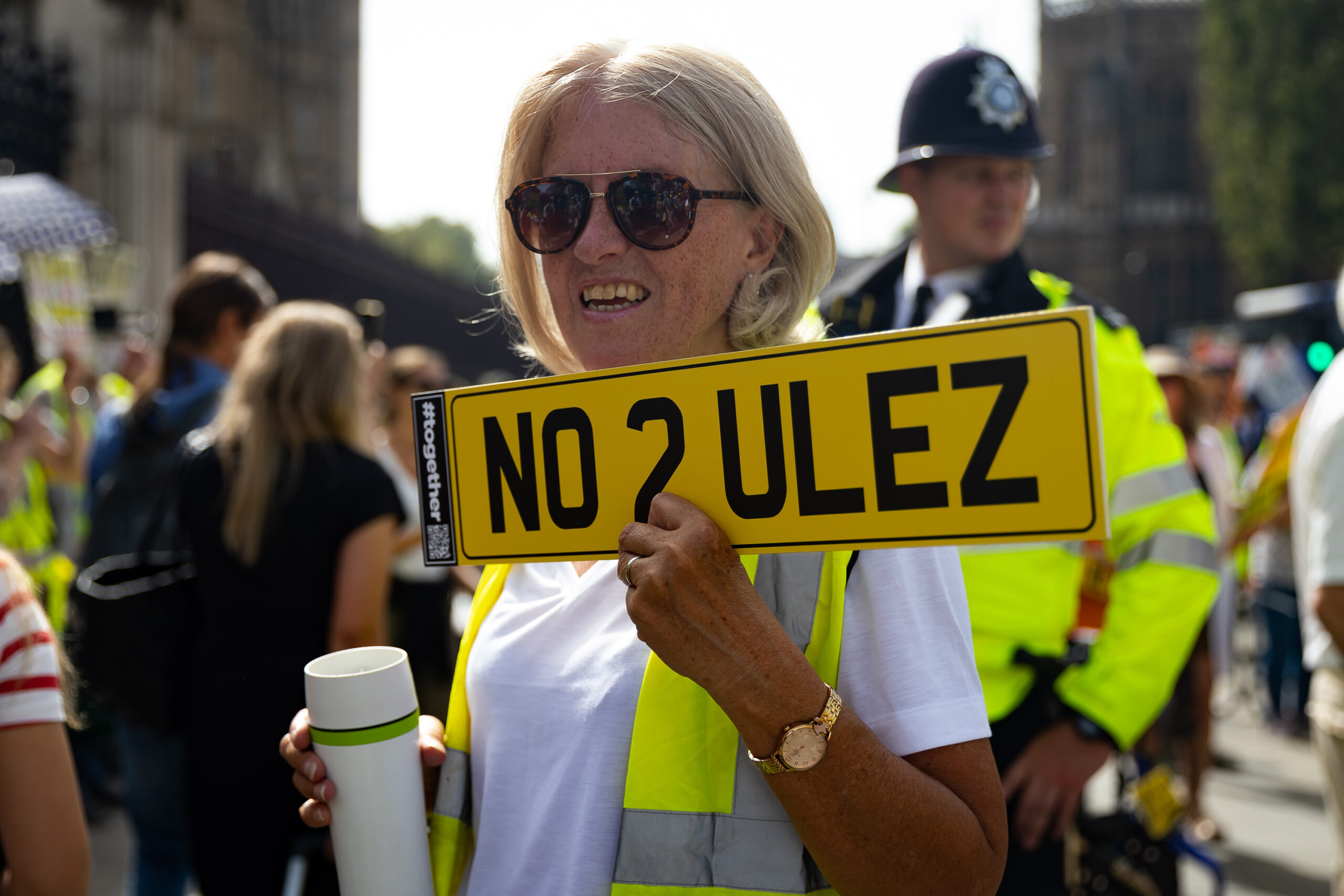The Public Wants to Save the Planet – As Long As It Doesn’t Personally Inconvenience Them
Not our precious petrol cars!
by Ell Folan
20 September 2023

Back in July, Just Stop Oil (JSO) experienced something unusual – they found they were the ones being protested. An alternative group called Just Stop Pissing People Off attempted to block Just Stop Oil from engaging in disruptive protests and interrupted their events, saying that the climate crisis is real but that JSO is distracting and alienating people. The counter-protests tell us a great deal about Britain’s contradictory attitude to the climate crisis.
Broadly, Brits understand that the climate crisis climate change is a major problem. 65% of us are worried about the climate crisis (versus just 28% who aren’t) while the same proportion supports the government’s aim of reducing Britain’s net carbon emissions to zero by 2050. In fact, the climate is one of our top concerns: 29% say it is one of the top issues facing the country, ahead of housing (24%), Brexit (18%) and crime (17%).
At first glance, Brits – including a majority of Tory voters – welcome policies to address the climate crisis. Eight in 10 back more tree planting, subsidies for energy-efficient homes and higher taxes for high-carbon companies. 62% would support a requirement for all energy production to come from renewable sources. But this enthusiasm has its limits.
When asked if they would back policies that would impose limits on what they personally can do, Brits quickly turn against them. For instance, two-thirds oppose the idea of a limit on how much meat they can buy, and a majority oppose banning petrol and diesel cars. And while generally popular among Brits, the ultra-low emissions zone (Ulez) recently expanded across the entirety of Greater London has sparked a dedicated protest movement.
This disconnect can lead voters to adopt seemingly incoherent positions: even though 62% of voters back the idea of requiring all energy to be renewable, just 39% want to ban new North Sea oil fields, and a mere 32% want to prohibit the sale of gas boilers, even though such policies would logically flow from a renewables requirement. In theory, Brits want all energy to be renewable. In practice, they do not.
Brits seem to accept that planes are a contributing factor to pollution and carbon emissions, and back a frequent flyer levy. But when asked if they would back a blanket airfare tax, support melts away: just 29% back a blanket tax, versus the 56% who back targeting frequent flyers.
This issue speaks to a broader problem: Brits are all in favour of actions to address the climate crisis, but not when it requires them to contribute personally. 55% of Brits think that policies to reduce emissions should not be introduced if they result in higher costs for ordinary people (just 27% said they should), hence the public opposition to an increase in fuel duty: just 25% support it, with 65% opposed.
Indeed, cars are a particularly sore point for climate-conscious Brits, who have paradoxically become increasingly defensive of their vehicles in recent years. Back in 2021, a majority of Brits (51%) supported banning the sale of petrol cars by 2030, with just 35% opposed. In 2023, these numbers were reversed.
These two factors – a desire to avoid personal inconvenience, and a strong attachment to their cars – may explain why Brits distaste for Just Stop Oil: seven in 10 think that the group’s tactic of slowing down and blocking traffic on busy roads is unjustifiable – and why JSO has attracted such zealous counter-protests.
In truth, the British public is not as supportive of action on the climate crisis as many environmentalists would hope. We favour general, uncontentious ideas – net zero, tree-planting, tax rises on high-carbon companies – but when asked for our opinion on a climate policy that would directly affect us personally, we baulk. This is partly due to worries about the cost of living, but it’s also about avoiding personal inconvenience.
Just Stop Pissing Everyone Off perfectly encapsulates the British attitude to the climate crisis: sure, it’s a problem, but not ours. As Homer Simpson once asked: “Can’t someone else do it?”
Ell Folan is the founder of Stats for Lefties.


